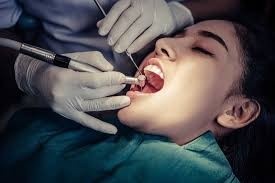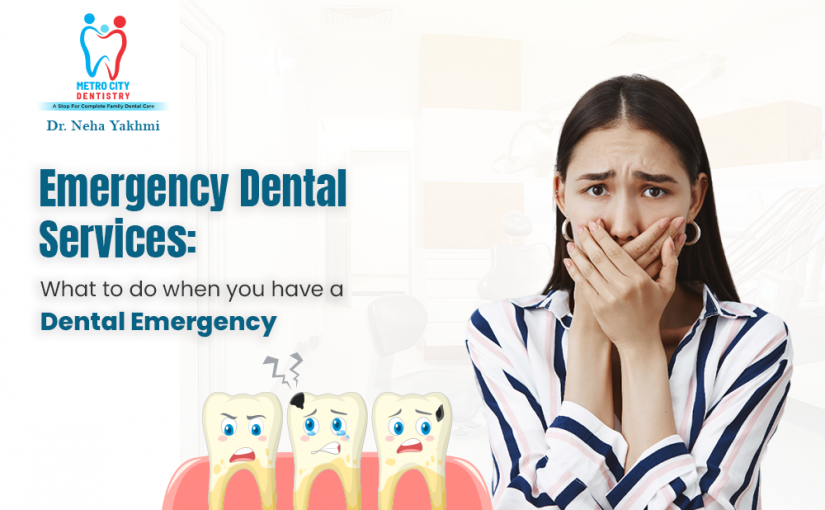Maintaining a healthy smile starts with good oral hygiene at home—but it doesn’t end there. Regular dental visits and professional care play a vital role in keeping your teeth and gums in top shape for life. At Metro City Dentistry, we provide a wide range of general dentistry procedures designed to prevent dental problems, restore oral health, and enhance your overall well-being.
Whether you’re visiting for a routine check-up or a more advanced treatment, understanding what these procedures involve can help you take a more active role in your dental care. Here are the top 10 general dentistry procedures everyone should know about.
-
Dental Exams and Cleanings
Regular dental exams and cleanings are the foundation of good oral health. During these visits, your dentist checks for signs of tooth decay, gum disease, and other oral issues before they become serious problems. Professional cleanings remove plaque and tartar buildup that brushing and flossing alone can’t eliminate.
At Metro City Dentistry, we recommend scheduling a cleaning and exam every six months to maintain optimal oral health and a bright smile.
-
Digital X-Rays
Modern dentistry relies on advanced imaging to provide accurate diagnoses. Digital X-rays allow dentists to see what’s happening beneath the surface—detecting cavities, bone loss, infections, or impacted teeth early on.
Digital technology significantly reduces radiation exposure and provides instant images, helping your dentist create precise and efficient treatment plans.
-
Fillings for Cavities
Even with good brushing habits, cavities can develop. When decay damages a tooth, a filling restores its strength and function. Today’s tooth-colored composite fillings blend seamlessly with natural enamel, making them both durable and discreet.
At Metro City Dentistry, we use high-quality materials and precise techniques to ensure your filling is comfortable, strong, and long-lasting.
-
Root Canal Therapy
While the term “root canal” might make some patients nervous, the procedure is actually a pain-relieving treatment that saves infected or severely decayed teeth.
During a root canal, the dentist removes the damaged pulp inside the tooth, cleans the canal, and seals it to prevent further infection. With modern technology and anesthetics, root canal therapy is comfortable and highly effective, allowing you to keep your natural tooth rather than extract it.
-
Dental Crowns
When a tooth is badly decayed, cracked, or weakened, a dental crown provides full protection. A crown—sometimes called a “cap”—fits over the entire visible portion of the tooth, restoring its shape, strength, and appearance.
Crowns are made from materials like porcelain or ceramic for a natural look and long-lasting durability. They’re often used after a root canal or to strengthen a tooth with a large filling.
-
Tooth Extractions
Sometimes, a tooth is too damaged to be repaired and must be removed. Extractions are also common for impacted wisdom teeth or overcrowded mouths before orthodontic treatment.
At Metro City Dentistry, we perform extractions with gentle precision, using advanced techniques to minimize discomfort and support a smooth healing process. We’ll also discuss tooth replacement options, such as dental implants or bridges, when necessary.
-
Dental Bridges
A dental bridge is a restorative solution used to replace one or more missing teeth. It consists of an artificial tooth (or teeth) anchored by crowns on the adjacent natural teeth.
Bridges restore your ability to chew and speak comfortably while preventing neighboring teeth from shifting out of place. With modern materials and craftsmanship, bridges look natural and fit comfortably.
-
Periodontal (Gum) Treatment
Healthy gums are just as important as healthy teeth. Periodontal treatment focuses on preventing and treating gum disease—a common condition caused by bacteria and plaque buildup.
Early stages (gingivitis) can be treated with professional cleanings and improved home care. More advanced cases (periodontitis) may require deep cleaning procedures like scaling and root planing to remove bacteria below the gumline and restore gum health.
-
Dental Sealants and Fluoride Treatments
Prevention is key to long-term oral health, especially for children and teens. Dental sealants are thin protective coatings applied to the chewing surfaces of molars to block out decay-causing bacteria.
Fluoride treatments strengthen tooth enamel and make it more resistant to cavities. Both procedures are quick, painless, and highly effective for protecting smiles of all ages.
-
Custom Mouthguards and Nightguards
Your teeth deserve protection beyond daily brushing. Custom mouthguards shield teeth from sports-related injuries, while nightguards prevent damage from teeth grinding or clenching (bruxism).
Because they’re custom-made, these guards fit comfortably and provide superior protection compared to over-the-counter options.
Comprehensive Care at Metro City Dentistry
At Metro City Dentistry, our mission is to provide high-quality general dentistry that helps you achieve and maintain a healthy, confident smile. From preventive checkups to restorative treatments, our experienced team uses the latest technology and gentle techniques to ensure your comfort and satisfaction at every visit.
We believe that dental care should be proactive—not just reactive. By understanding these common procedures and visiting your dentist regularly, you can prevent serious issues and enjoy a lifetime of healthy smiles.
Take the Next Step Toward a Healthier Smile
Whether it’s time for your next cleaning or you’re experiencing discomfort, we’re here to help. Schedule an appointment with Metro City Dentistry today and experience comprehensive, compassionate care tailored to your needs.














